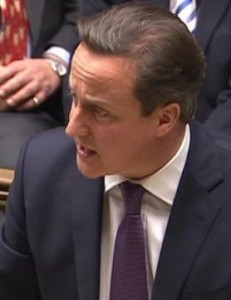LETTER FROM SCOTLAND 16th May 2014
This week we’ve been celebrating the 15th anniversary of the Scottish Parliament…if celebrating is the right word. It is certainly the focal point for our current debate over independence, which boils down to the question: just how much power should the parliament have ?
Almost everyone wants it to have more power. Unfortunately we are not being offered a range of powers in the referendum question, only a yes or no to independence. And looking back on it, this is one of the mistakes the Better Together campaign made at the beginning of this whole divisive affair.John Smith, the Labour leader who’s death 20 years ago has been marked this week with the opening of a new Centre for Public Service at Glasgow University, once famously remarked that devolution was “the settled will” of the Scottish people. It has been anything but settled. John Smith may have started the ball rolling but Donald Dewar kicked it on with his famous remark – “devolution is a process not an event.”
So more powers are being devolved from Westminster all the time, the latest involves half of all income tax, landfill tax, stamp duty on house sales etc. The Better Together parties have promised still more powers, though, disastrously, they’ve not been able to agree on a detailed alternative to independence. Thus the referendum debate has become even more confused and uncertain.
The prime minister came to Glasgow on Thursday to try to forge a united front against independence, even invoking the spirit of John Smith. But Mr Cameron’s “sunshine” speech was not exactly helped by the Chancellor back at Westminster who repeated his warning that there can be no currency union after independence. And the SNP’s Nicola Sturgeon was able to dismiss the spring offensive as a “Tory takeover of the No campaign.”The referendum has however brought the dying tradition of the public meeting back to life. I was at a referendum debate in Edinburgh last Sunday afternoon – sponsored by the local churches – and every seat was taken. I could see steam coming out of peoples’ ears as they tried to keep their feelings under ecclesiastical control. The Church of Scotland – which holds its general assembly this coming week – has called for a service of national reconciliation in St Giles Cathedral in the immediate aftermath of the referendum in September.
It could be a humbling experience, if the campaigns turn nasty or if the result is close. Perhaps we Scots will be revealed as not the greatest practitioners of democracy in the world. After all, the parliament we have built over the last 15 years is not without its flaws. Its successes I think have included free personal care, free university education, the national parks, the smoking ban and being a national forum. But its failures are legion: the cost, the expenses scandals, its timidity over taxation, its failure to spread power down to local communities and its turgid and ineffective committee system.
But parliaments are not the only things that can go wrong. The organisers of the Commonwealth Games suffered humiliation at the hands of their computer experts earlier this week. The sale of the last 100,000 tickets had to be suspended when the on-line and telephone systems designed to handle the stampede collapsed. Then our newest jail, HMP Grampian in Peterhead, which only opened in March, erupted in an old-style riot. Forty prisoners went on the rampage, beating up their new furniture and fittings. Police had to be brought in to restore order.The brutal world of football also suffered a few shocks this week. The new owner of Hearts, Ann Budge, brought along her new brush on Monday morning and swept away the manager Gary Locke and eight other coaches and players. Instead she’s brought in a former manager Craig Levein and promoted Robbie Neilson to first-team coach. The Paisley club St Mirren have also promoted Tommy Craig from within. And in both cases, the new philosophy seems to be to nurture home-grown players rather than take part in the bidding war for outside talent. Not before time.
About the only place were tranquillity reigns is the European election. There are unlikely to be any riots or stampedes at the voting stations on Thursday. But we are all waiting to see if the SNP increase their number of seats from 2 to 3, whether Labour will keep their two seats and whether the Conservatives and the Liberal Democrats will hold on to their single seats or whether they will be taken by the Greens or UKIP. Who would have thought that democracy could be so exciting ?





























